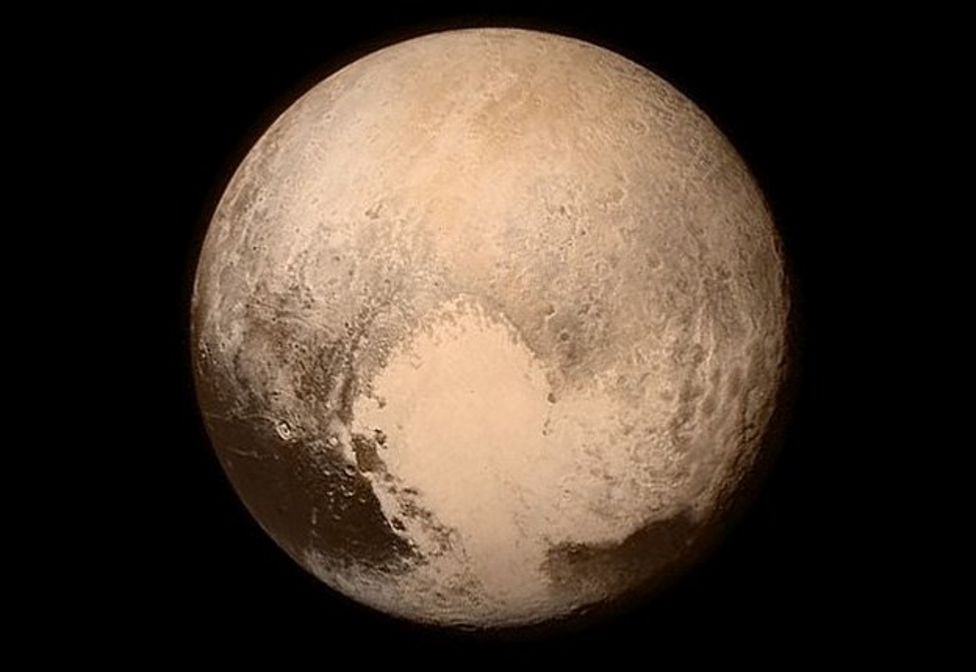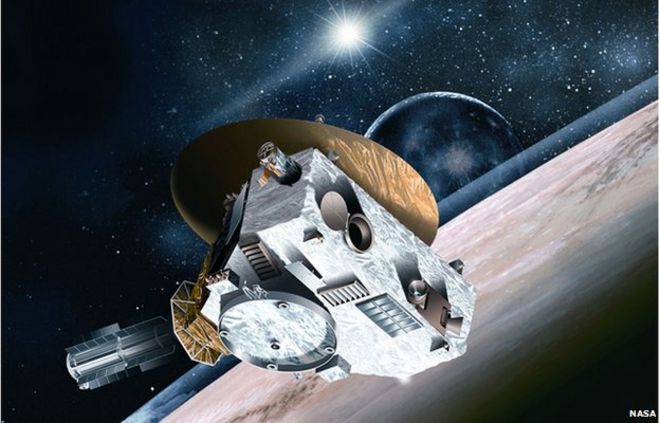
Nasa's New Horizons spacecraft has made the first visit to Pluto, speeding past at 14km per second.
Earlier, the space agency released the most detailed picture yet as it hurtled towards the dwarf planet on Tuesday.
The probe was set to grab more pictures and other data as it passed 12,500km from Pluto at 11:50 GMT (12:50 BST). Controllers got a last health status report, before the robotic craft turned its antenna away from the Earth to concentrate on its target.
Only when New Horizons has its trove of images safely in its onboard memory will it call home again. This is not expected to happen until just after midnight (GMT) into Wednesday.
We have completed the initial reconnaissance of the Solar SystemAlan Stern, New Horizons chief scientist
It means there will be a long, anxious wait for everyone connected with the mission, as they hold out for a signal that will be coming from almost five billion km away.
But scientists already have colour data from the approach and said they might release a new picture later on Tuesday. Images set to be released on Wednesday will be more than 10 times the resolution of those already published.
New Horizons' flyby of 2,370km-wide Pluto is a key moment in the history of space exploration.
The robotic probe turns its antenna away from Earth during the flyby"We have completed the initial reconnaissance of the Solar System, an endeavour started under President Kennedy more than 50 years ago and continuing to today under President Obama," said the mission's chief scientist Alan Stern.
"It's really historic what the US has done, and the New Horizons team is really proud to have been able to run that anchor leg and make this accomplishment."
"This is true exploration...that view is just the first of many rewards the team will getJohn Grunsfeld, Nasa science chief
It marks the fact that every body in that system - from Mercury through to Pluto - will have been visited at least once by a space probe.
"This is true exploration...that view is just the first of many rewards the team will get. Pluto is an extraordinarily complex and interesting world," said John Grunsfeld, Nasa's science chief.
The information acquired on approach will be as nothing to the huge number of observations it will have acquired during the flyby. But scientists have already been attempting to interpret the data and images so far. The BBC will be screening a special Sky At Night programme called Pluto Revealed on Monday 20 July, which will recap all the big moments from the New Horizons flyby.


No comments:
Post a Comment